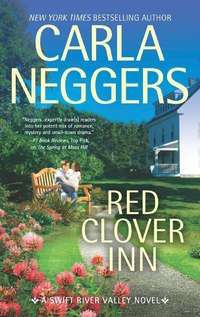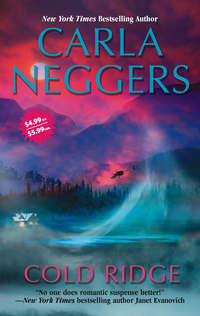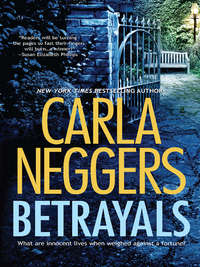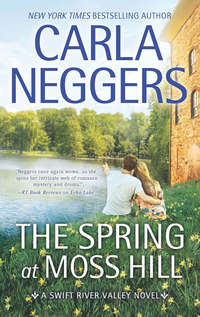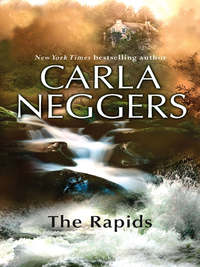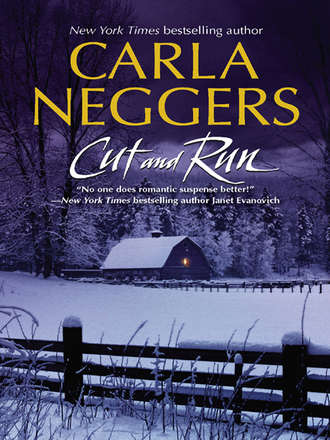
Полная версия
Cut And Run
He laughed. “Thank you. And you look lovely, as always.”
He was lying, of course. Her simple black dress made her look thinner, even older. Not that she cared. It was a good dress. Forty years ago a slice of bread had seemed such a luxury. Now she had so much: a big house, a housekeeper, a gardener, a grand wardrobe. When she died, her nephews would get rid of the help and sell everything else and invest the profits. They didn’t need anything she had. I must change my will, she thought suddenly. Although she wasn’t a religious woman, she decided she would contact a rabbi when she returned to Palm Beach and ask him to suggest appropriate charities. Her nephews might be annoyed with her, but the “sacrifice” would be good for them, perhaps encourage them to be more generous in life than she’d been, thinking she never had time for it.
Politely taking her arm, Senator Ryder escorted her down the wide aisle to the orchestra seats. She noticed the looks they received from other well-to-do concert-goers who, of course, recognized the handsome senator. She could just imagine what they were thinking. He was single, divorced from a pretty, shy woman who, it was said, couldn’t tolerate the scrutiny of a public life, although what other kind of life she’d expected to have with a member of the Ryder family, Rachel didn’t know. She’d left him shortly after his election to the Senate. No children had been involved. Now Ryder escorted a variety of women, always elegant and always beautiful, to different functions, but Rachel supposed he was never seen with someone like herself, tiny and wrinkled and unwilling to smile just for the sake of smiling.
“I’m glad you came,” the senator said as they took their aisle seats.
“I am, too.”
It was warm in the hall, and Rachel felt tired. Since tea with Catharina, she’d had her doubts about tonight. Perhaps it had been wrong to involve her old friend, wrong to put her in the position of having to avoid her own daughter’s questions. If she’d had a child, Rachel wondered, would she feel the same need to protect her from the past? She felt her spine stiffening. I would kill Hendrik de Geer before I let him touch a child of mine! Or of a friend? Although Juliana Fall wasn’t her daughter, Rachel felt a keen responsibility toward her, and she’d promised Catharina. You’re not like Hendrik, she told herself. If you make a promise, you must do everything in your power to keep it.
Ryder gave her one of his heart-melting smiles. “I assume Mrs. Fall is here?”
“Yes.”
“Wonderful. I look forward to meeting her.”
The lights dimmed, and Rachel could feel the senator’s strong shoulder brush up against her. Such an honest face, such a handsome man. She didn’t trust him.
Matthew slouched down in the soft seat, deciding he looked absorbed in the concert rather than bored, but not caring either way. Leave it to Feldie to get him a ticket down in the front with the tuxedos and designer gowns. He hadn’t worn a tuxedo in his life and didn’t intend to start now, but, still, Feldie would have no grounds to gripe. His outfit—deep berry wool jacket, dark gray wool polo shirt, and dark gray wool pants—had cost him more than the Gazette paid him in a week. She wouldn’t, however, be happy about his shoes. He had on his Gokeys.
Sam Ryder was a half-dozen rows down to Stark’s right, but Matthew had taken no pleasure in having instantly spotted the senator among the sold-out crowd. He wasn’t with a Dutchman. He was with a small old woman Matthew didn’t recognize. He and Sam Ryder lived in the same town and once upon a time, at least for a while, had operated in the same social circles. But the junior senator from Florida had always preferred to think that Matthew Stark no longer existed. It was just as well.
Says he’s going after a diamond, goddamn biggest uncut diamond in the fucking world. You believe it?
Weasel talk. Still, this was U.S. Senator Samuel Ryder with whom they were dealing, and, yeah, Stark thought, I believe it.
“Ah, Weaze, my friend,” he thought as the Schubert symphony wore on, “what have you gotten me into this time?”
Juliana shoved her black leather satchel into an out-of-the-way corner of her dressing room and tried to put its contents out of her mind. A 1936 black crepe dress, rose-colored stockings and matching T-strap shoes, a multicolored sequined turban, a Portuguese shawl that used to hang over Grandmother Fall’s piano in her proper Philadelphia home, and a bag of bright makeup. All of it was pure J.J. Pepper. Juliana knew she was taking a chance, but there had been a cancellation and Len had offered her the Club Aquarian stage at eleven. She’d never played for the late-night crowd. How could she refuse? “Oh, Len, I can’t, I’m doing Lincoln Center tonight.” God. She’d told him she’d be thrilled.
But it meant leaving directly from Lincoln Center and making a risky, mad dash down to SoHo.
She had to be crazy.
She’d planned carefully. She’d change into the black dress backstage after the concert and put on her black boots and black cashmere coat. In the cab, she’d pull the turban on over her blond hair, so she wouldn’t have to tint it pink or purple or whatever, and drape Grandmother Fall’s shawl over her coat, to make it look more J.J. Len would recognize cashmere when he saw it, but she’d have to take her chances. Finally, she’d slip into J.J.’s rose-colored shoes and gob on some makeup. She’d already have the stockings on; nobody would see those under the boots.
It was all, she thought, a matter of timing and guts.
But first she had a Beethoven concerto to perform. She breathed deeply, shut her eyes, and focused her energy, and for once the prospect of a memory lapse held no terror for her whatsoever. Forgetting a passage in front of a sold-out Lincoln Center audience, the New York Philharmonic Orchestra, and one of the world’s great conductors, she thought, was the least of her troubles.
“You’ve lit your candle at both ends,” she said to herself, “and if you don’t watch it, your ass is going to get burned.”
Holding his emotions rigidly in check, Ryder survived the first half of the concert. He had cultivated a taste for classical music, but he’d been relieved to see he wouldn’t have to sit through any difficult modern compositions. Even so, he found himself twitching with impatience. He wanted tonight over and done with—another tactical objective achieved.
During the intermission, he resisted looking around for de Geer, uncertain the Dutchman would actually be inside the concert hall. He smiled only briefly at Rachel Stein, trying to discourage conversation. He realized they had nothing more to say until they met with Catharina Fall, a meeting he was confident wouldn’t last long. He was playing a dangerous game, manipulating Rachel Stein, Phil Bloch, Hendrik de Geer. But what choice did he have? Everything would work out.
“Have you seen Juliana Fall perform?” the old woman at his side asked.
Catharina Fall’s daughter. Her appearance tonight had provided him with a convenient way of getting everyone together with the least possible risk. The women wouldn’t have to see de Geer; the Dutchman could see them, from the lobby, from inside the concert hall, or from outside. It made no difference to Ryder. He was quite confident de Geer wouldn’t want to risk a face-to-face confrontation with either woman. It was all so easy. Providential.
“No,” he replied. “I haven’t had the opportunity, although I understand she’s very good.”
“Phenomenal, I’ve been told. So we must pay attention.”
How could he listen to a piano concerto when all he wanted to do was to move on to the next objective? But he knew he had to wait until the end of the concert. He clenched his teeth and said nothing as the pianist strode out onto the stage.
Then he couldn’t have spoken if he’d wanted to.
Juliana Fall. My God, he thought, how have I missed her?
She was a vision. Everything about her was beautiful, elegant, heart-stopping. She was draped in flowing ice blue, her only jewelry a simple sapphire pendant, and her hair, the lightest of blonds, bounced on her shoulders. Her skin was translucent. When she smiled at the audience, it was as if something big and hard slammed into his chest, and he couldn’t get enough air. He forgot about the old woman at his side, about the diamond, about the predicament he was in, about Hendrik de Geer and Phillip Boch and all the sordidness he had to face. Now he couldn’t stop staring. Nothing mattered except the woman on stage.
“She’s lovely, isn’t she?” Rachel Stein said, irritatingly matter-of-fact.
Ryder gave a curt nod. His jaw ached. He took a quick, sustaining breath. Never had he been so affected by a woman.
The crowd settled down as Juliana Fall sat at the piano, and the concerto began. Sam Ryder never took his eyes from her. He studied how her long fingers danced on the keyboard, how her expressive face changed with the music, how she used her entire body to bring forth the incredible sounds from her instrument. Her concentration seemed unshakable. It was as if no one else was there, just her and the orchestra. There was a wildness, a sense of daring to her performance that Ryder hadn’t expected. She seemed always on the verge of going over the edge, of making a mistake that would leave her audience gasping and horrified.
What would it be like to have her concentrate like that on him? To have that wildness unleashed in bed? Ryder felt the stirring of an erection and shifted, hoping Stein wouldn’t notice, and then he realized he’d been biting down hard on a knuckle. He pulled his hand from his mouth, and immediately his fingers formed a tight fist. He shoved his hand into his lap.
He wasn’t aware that the concerto had ended until the people around him were jumping to their feet, roaring and clapping, and suddenly he remembered where he was and what he was supposed to be doing. He rose unsteadily, grasping the back of the seat in front of him.
Hendrik de Geer had found the concert interminable and was glad it was over. He was not a man who endured immobility well—nor United States senators who played games with him. The Dutchman took some small pleasure in observing Sam Ryder’s reaction to Juliana Fall. She was very attractive, but there was something remote and untouchable about her. Yet she had that zany streak that made her paint her hair pink and dress up in strange clothes, nothing like the dress she wore tonight. Hendrik felt a strange protectiveness toward her. He wouldn’t want a man like Ryder to get too close to this unpredictable young woman, this child of Catharina.
Inside him, an alarm went off, and Hendrik reminded himself that he was a practical man. He never permitted himself to let sentiment motivate his actions or force him to make mistakes, although, of course, he understood how well sentiment could motivate others and force them to make mistakes.
Once more he looked across the seats, down from his on the left, and saw Rachel Stein. It would be dangerous, he knew, to let the past influence his judgment of her and the situation. He had never anticipated seeing her again. Hers was a name he had learned not to remember, even in his nightmares. His unconscious couldn’t tolerate the thought of her, of her family, of what he, with all his good intentions, had left happen to them. Yet tonight there she was, so small and self-righteous—and so old. He remembered what a pretty mite she’d been. He used to love to bring her gifts, to see the light in those dark, intense eyes. Now she hated him. There was no forgiveness in her heart; she believed she was the only one ever to have suffered. Such arrogance, Hendrik thought.
Seeing her again, he’d almost lost control of himself. But what would that have accomplished? Senator Ryder had invited Rachel Stein to Lincoln Center tonight for a reason, and Hendrik, too, for a reason. Instead of falling apart, the Dutchman decided to wait and see what those reasons were. He had a fair idea already, but he had to know for certain.
He didn’t join the standing ovation. Ryder would be furious if Hendrik let himself be seen, but he didn’t care. He left the concert hall, moving quickly up the aisle, his eyes focused straight ahead. Catharina would be here tonight. If she saw him, she would say nothing. Hendrik could almost feel her shock, her hatred as he thought of her. His breathing became rapid, and he felt a stitch in his side, but he didn’t slacken his pace.
Trust me, my Catharina.
But of course she never would.
Ryder’s reaction to Juliana Fall had been more visceral than to anyone he’d ever met in his life, but sensing Rachel Stein watching him, he tried to control it.
“Juliana’s quite a performer,” the old woman said quietly.
“Yes, amazing.” Ryder coughed as he fought to recover his composure, hoping this impossible woman didn’t notice how little he had left. “She’s an amazing talent.”
On stage, Juliana Fall took her bows alone, with the conductor, with the entire orchestra. Her smile was dazzling. Her shining hair flopped carelessly down the front of her shoulders as she gave her final bow. Ryder could almost feel its softness on his fingers.
“You must understand something, Senator Ryder,” Rachel said.
“Please—not now. In a moment.”
She ignored him. “Hendrik de Geer is the kind of man who would destroy Juliana Fall if he felt he had to to save himself.”
Ryder swung around. “No!”
“You heard me,” she said calmly.
Ryder swallowed, fighting himself. The manipulative little witch! But he couldn’t lose control, not now. Juliana Fall was an unexpected twist; he’d expected to find her as distasteful as her mother’s friend. Ryder was furious. This wasn’t at all what he’d planned! Rachel Stein was the one to have been caught off balance.
“Once I was young and beautiful and talented, as was Juliana’s mother,” Rachel said wistfully, “but Hendrik de Geer robbed us of that, he and his Nazi friends.”
I don’t care! Ryder thought wildly. He had to finish it now and regain the momentum. People were streaming into the aisle. “I’m very sorry about your past, Miss Stein, and I’m sympathetic to your suffering.” He paused, feeling his sense of control seeping back into him. Yes, he thought, I can handle this. “I wish I could help you bring this de Geer to justice, but I’m afraid there’s nothing I can do. I know a good deal less about him than you do yourself and have been unable to learn more. If you wish to bring charges against him for his actions in Amsterdam during Word War II, I can only encourage you, although I must warn you that you’re unlikely to get very far. Greater criminals than he have gone free. In any case, I have to tell you that what you choose to do from this point is your responsibility.”
Rachel Stein made no response. She simply nodded dully, as if she’d withdrawn into herself, as if she were sorry she’d ever believed in him or anyone else. Ryder brushed off the stirrings of pity. The woman’s maudlin, he told himself, and there is nothing I can do.
He added, “I only met de Geer that one time.” He sighed, lifting his shoulders in a helpless, innocent shrug. “As I told you, I had no idea of his Nazi past.”
“Then there’s no point in our meeting with Catharina going forward,” Rachel said tightly.
“I’d like to explain my position to her—”
“Why waste your time? In fact, why did you even bother with tonight if you knew you could do nothing? A telephone call would have been sufficient.”
“I felt the need to tell you in person, face to face. And I didn’t give up trying to get information on de Geer until right before the concert.”
Her dark, intense eyes shot up at him. “I don’t believe you, Senator. I should have known from the beginning that you would do nothing to help me. Hendrik de Geer is responsible for the deaths of twelve people, but they were not Florida voters, were they? Well, I am not ready to give in, not yet. You say you met Hendrik only that one time? All right. I will find out if you speak the truth. I will find out if there’s any connection between you and Hendrik de Geer.” She narrowed her eyes, her anger and determination palpable. “I will find out.”
Still fuming, she marched past him.
Sam Ryder watched the tiny, shattered woman disappear into the crowd drifting toward the lobby, but he didn’t dare relax. She would leave and accept that her threats were empty, but, nevertheless, Ryder no longer felt that telling Bloch about her had been such an act of weakness. Surely, though, she was intelligent enough to recognize her defeat. There’d be no more calls, no more visits, no more letters. He was sorry not to meet Catharina Fall, in case she would have been able to provide more leverage for him against de Geer, but at least he’d gotten rid of Rachel Stein. One tactical objective achieved. Now on to the next. The Dutchman would be waiting outside in Ryder’s car.
But Juliana Fall…
Ryder admitted he didn’t want to involve her in his difficulties, but he didn’t see that he’d have to. She was a pianist. Beautiful, unforgettable. He would just have to leave her out of it and concentrate on making de Geer do his bidding.
Yet, as he walked stiffly out into the aisle, he looked longingly back toward the stage. It seemed so empty. She was back there, somewhere, accepting congratulations, flowers.
De Geer can wait, he thought. You’re a United States senator. Use your influence.
He threw his coat over his arm and headed backstage.
Adrian Fall took his wife’s arm as she stumbled into the aisle. He was a tall, fair-skinned man with handsome, angular features, and she loved him dearly. He had come into her life just when she’d begun to believe she would never be able to love and trust anyone again, and he’d taken her away from Amsterdam, from her past, from her memories. He understood that these were things she couldn’t talk about. He never pressed her, just allowed her to be what she was. Together they’d spoiled and adored Juliana, building a new life, their own life. He was a quiet, dear, understanding man, but right now she wished he’d just stayed home tonight. He knew nothing of Rachel Stein, nothing of Hendrik de Geer. How could she explain to him?
“Catharina,” he said, worried, “what is it? Are you all right?”
She gulped for air, not seeing him. She was white, shaking all over. “Yes, fine, I just…” There wasn’t enough air! I’m going to faint. “A headache.”
“You’re hyperventilating. I think I’d better get you home.”
Home, she thought vaguely, trying to stop gulping for air now that Adrian had told her what was wrong. There was too much oxygen in her bloodstream already. Ah, Adrian, always so steady, so right. Her mother used to say the best cure for hyperventilation was a bag over the head. Oh, Mamma! Her mother would be strong now. She wouldn’t simply go home. She wouldn’t be tempted to lock herself in her rooms high above Park Avenue and never come out.
Catharina stretched herself and put a shaky hand to her mouth. My God, she thought, I’ve seen him too. Hendrik! She had sensed he would be here tonight. He had walked right past her, and she’d only caught a glimpse of him. It was enough. His face was seared in her memory.
She touched Adrian’s hand, letting his warmth anchor her in the present. She had to warn Rachel that Hendrik was here. That much she had to do, no matter her shock and fear. “I’m supposed to meet a friend,” she told her husband softly.
Adrian shook his head firmly, the stolid, practical banker. “You’re in no condition to meet anyone.”
Catharina looked down the aisle toward the seats where Rachel had sat with her senator. Rachel was gone already, and Senator Ryder—
“No!”
He was making his way backstage! Had Rachel misled her? Had she decided to involve Juliana after all? With a mad lunge, Catharina shot out into the aisle, but Adrian grabbed her by the waist, and she crumpled against him.
“Darling,” he said gently, “let me take you home.”
She was so grateful for her husband, for his goodness, but now she struggled against him, telling herself this time she had to fight, she had to go to her daughter and protect her from this. “Juliana—”
“She’ll understand, Catharina. You don’t have to congratulate her after every performance. She knows she has your undying support. Look, I’ll call her in the morning. Besides, Shuji’s here tonight.” Adrian gave her a small smile, maintaining a sense of false cheer, but there was no answering twinkle in his wife’s eyes. He was terrified. “They’ll have to have their postperformance fight. You wouldn’t want to interrupt.”
“You don’t understand…”
“I think I do. You’re not yourself tonight. Catharina, you can’t do everything. You can’t be all things to all people. You’re overtired. We’ll go up to Connecticut for a few days if you want.” They had an old farmhouse they were restoring themselves in Litchfield County. “The air will do you good.”
Catharina found herself unable to argue, and she nodded meekly, feeling foolish, a child again, the silly, innocent girl whom everyone had tried to protect. She went with Adrian into the lobby but still looked around madly for Rachel. What was happening? Rachel, my God, where are you? Was their meeting off? If not, what would she tell Adrian? If so, what would she do next? Go home and pretend none of this had ever happened?
But Rachel was gone, and Adrian, his arm tight around his wife, led Catharina toward the exit. When they were outside in the cold December night, she looked back toward the bright lights of the performing arts center and felt herself strangling with indecision.
Adrian opened a cab door, and she climbed inside.
Sam Ryder had gotten waylaid by an elderly gentleman and his fur-coated wife, and Stark was able to beat him backstage, where he knew Sam would be headed just as soon as he got rid of the old couple. Matthew had seen the senator’s reaction to Juliana Fall. He had to admit she’d nearly knocked him out of his seat when she’d walked on stage, but he could keep his perspective. An ex–chopper pilot, ex-author, ex-famous reporter and an internationally known concert pianist just weren’t going to make it. Fantasyland. Besides, she was probably just your basic airhead artistic type who would say, “Matthew Stark?” Which, he realized, more and more people were doing these days.
Sam Ryder, however, didn’t think like that. He’d never met a woman who didn’t want anything to do with him, and he assumed none existed. Maybe Matthew was wrong, and Juliana Fall would drop dead for him. But he didn’t think so.
He flashed his press credentials and approached her dressing room, ducking aside, within earshot but out of sight. He grinned to himself: hot-shot reporter that you are, snooping on a piano player. A good-looking Asian guy stalked past him and went in to see Ms. Pianist herself.
“Shuji—Jesus Christ, scare the shit out of me, why don’t you!”
Matthew felt the corners of his mouth twitch. Shit? Well, he thought, maybe Ryder hadn’t met any Dutchman and Weaze had sent him on a wild goose chase, but it seemed poor old Sammy Ryder just might need Stark’s help after all—to rescue him from one Juliana Fall.
Juliana guiltily shoved the black crepe dress behind her and manufactured a welcoming smile for Shuji. “Sorry,” she said, “but you startled me. How are you?”
Banalities, she thought. Shuji hated them, and he frowned at her because, of course, she should have known better. She had not asked the obvious questions. What did you think of my performance tonight, Shuji? Did I sound like I’m in a funk? She wasn’t sure she wanted to hear the answers, even if she had time, which she decidedly did not.
“Interesting performance,” Shuji said.
From long experience, Juliana realized that could mean anything. She dropped her dress, ever so casually, on a chair. Crumpled up, it looked like a normal black dress. A few months old instead of fifty years. Something Juliana Fall might wear to a postconcert dinner.
“You were on tonight,” Shuji continued, folding his arms across his chest. He was dressed entirely in black, as was his custom, and looked as fit and energetic as ever. His only vice was an occasional cigarette. “But still I heard something. I’m not sure I liked it, but I’m not sure, either, that what I heard is without possibilities. I’ve been thinking, Juliana, and—”



